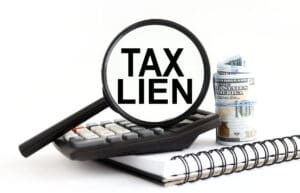Can Innocent Spouse Relief Protect Your Property Against Tax Liens?
By filing IRS Form 8857, Request for Innocent Spouse Relief, it may be possible to request a separate tax liability from a spouse whose actions led to understated tax on a joint return. This could reduce the innocent spouse’s tax liability and stop the IRS from seizing or foreclosing on a property, like a home or a vehicle. If the IRS fails to grant relief, the applicant could choose to pursue the matter further by taking his or her fight to the U.S. Tax Court with their tax attorney.
Why are Both Spouses Held Liable?
When a couple files jointly on their income tax return, they are viewed by the IRS as one person. Regardless if the husband was the only spouse working, both spouses are considered 100 percent responsible for paying taxes, including any understated tax that may be discovered later.
Even if the couple has divorced, the innocent spouse can be held responsible for the tax debt, including interest and penalties. When the tax debt is not paid, the IRS will begin proceedings to collect on that debt, including foreclosing on a family home, even if the spouse who was responsible for the tax problem no longer resides there.
What Factors Does the IRS Consider?
There is limited time to file for innocent spouse relief. It must be filed within two years after the IRS’s first attempt to collect. The standards for granting innocent spouse relief are very strict. When considering whether to award innocent spouse relief, the IRS will consider the individual’s:
- Knowledge of erroneous items, including unreported income or improper deductions/credits that cause an understatement of tax owed
- Financial situation and that of his or her spouse or ex-spouse
- Business experience and educational background
- Participation or knowledge of the activity resulting in the erroneous item
- Failure to ask about items or lack of items on the couple’s joint return that a reasonable person would normally question before signing
The IRS must be convinced that the spouse is truly innocent and being unfairly held liable for the tax debt. Even when all requirements are met for relief, the IRS will thoroughly investigate whether the applicant significantly benefited from the unpaid taxes, is still married to the other spouse, suffered abuse from the ex-spouse or will face extreme financial hardship if required to pay the tax debt.




